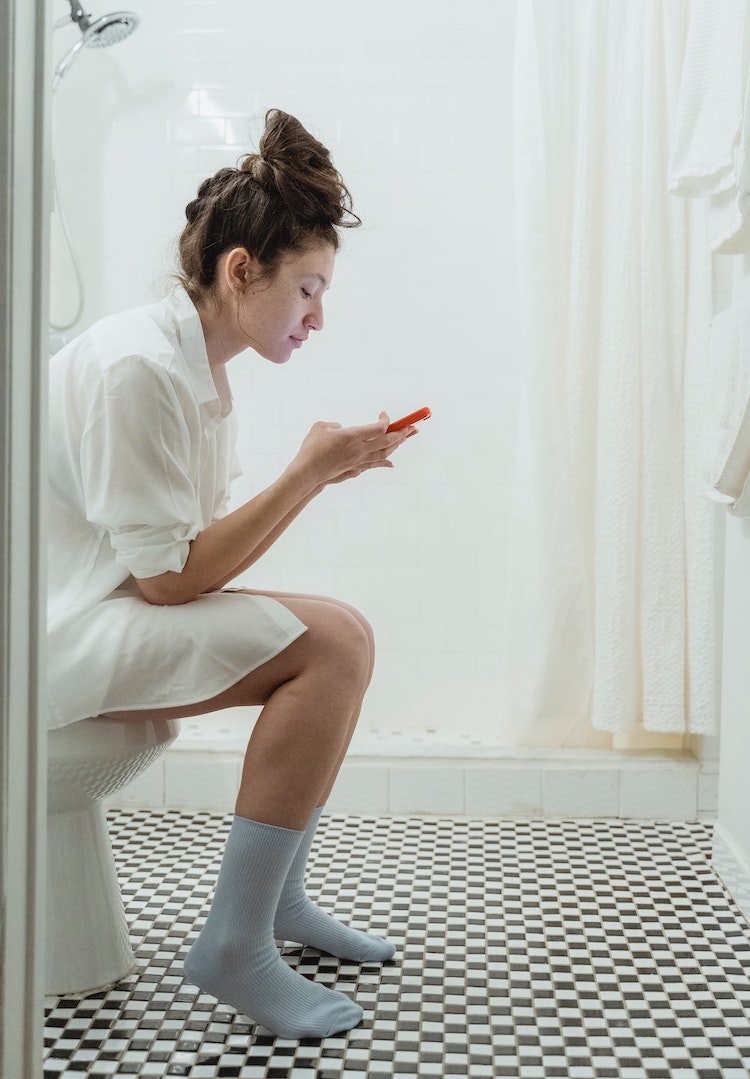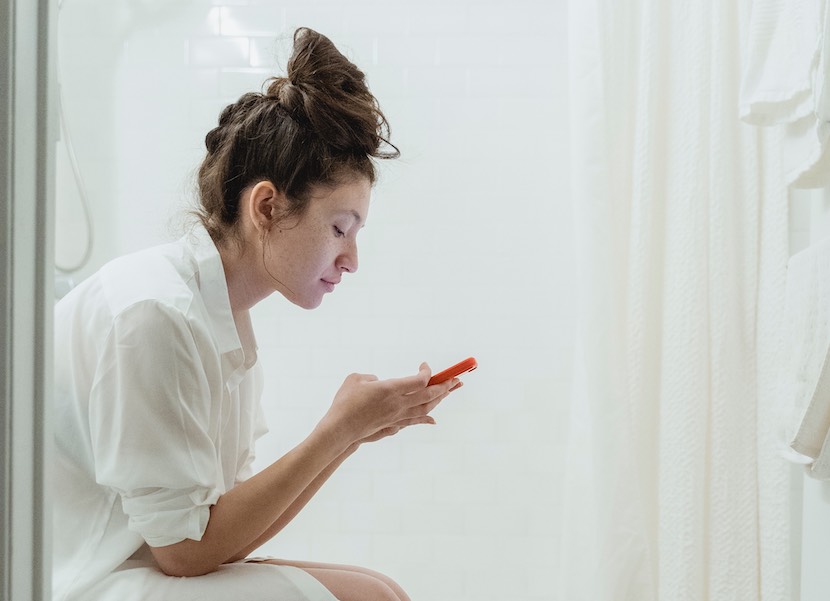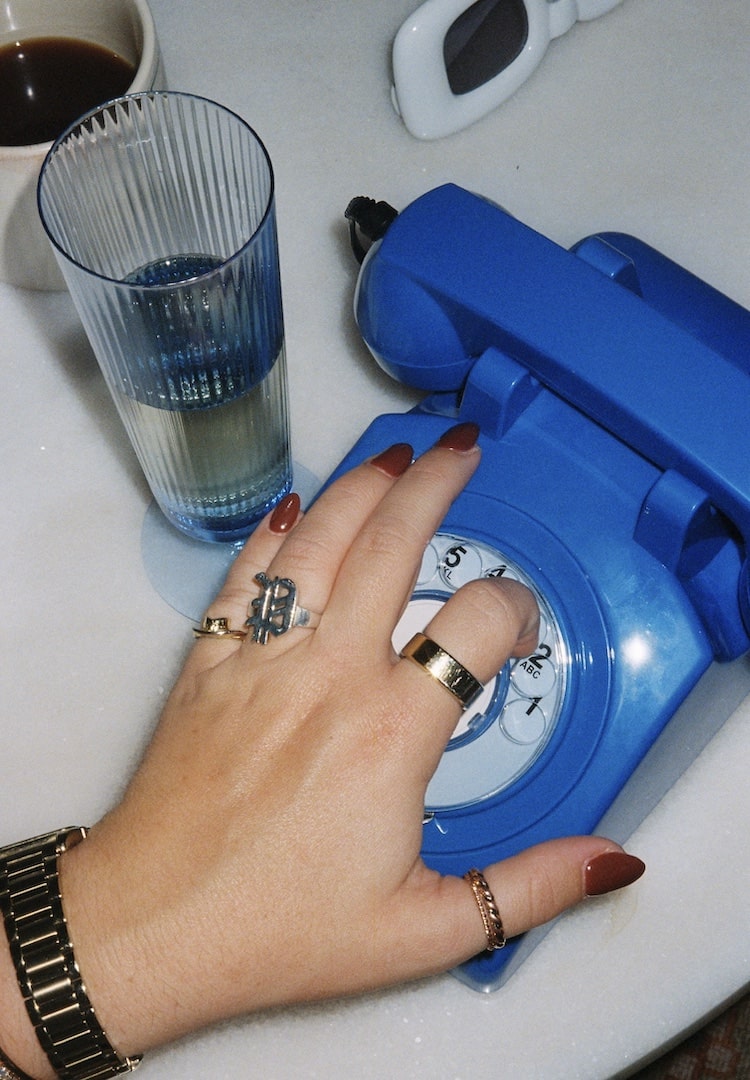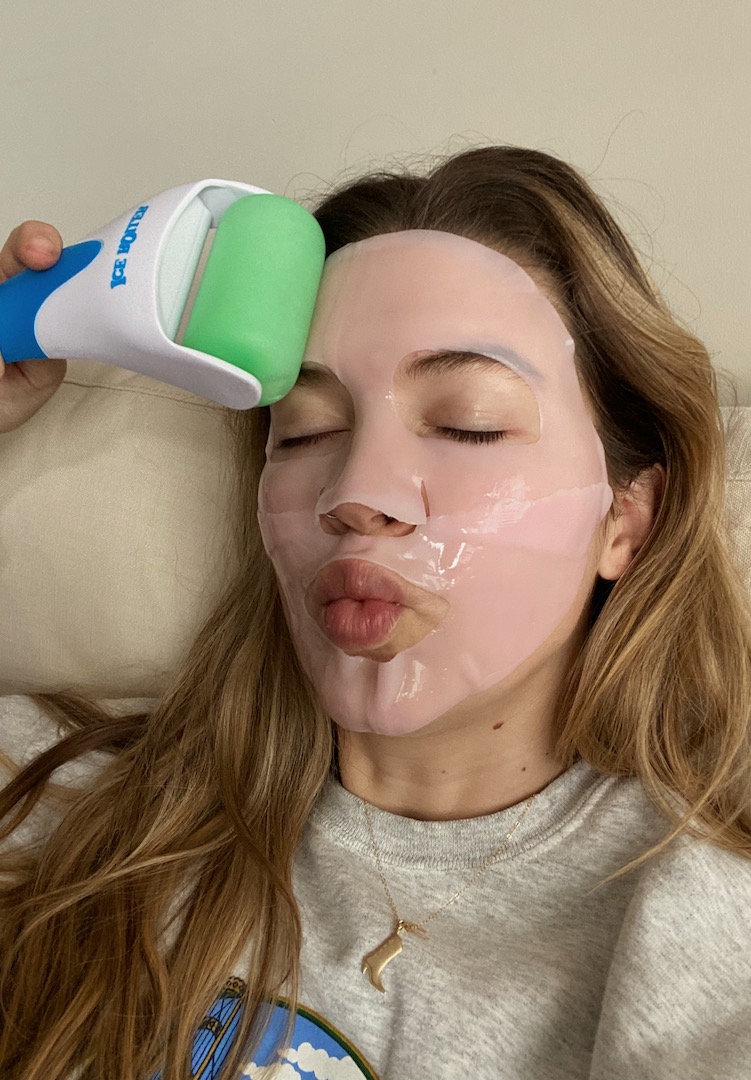Could gut meditation help my chronic IBS?
WORDS BY CAT FORSYTH
“My IBS has been a weight on my shoulders for quite some time now, but I’ve found in the last year or so, it’s become almost disabling.”
I’ve always been fascinated with how the body functions, even as a very young child. As I grew older, I developed a more sophisticated understanding of the world and I also became curious about how the mind works.
Now, as a young adult with significant lived experience with both mental and physical health struggles, I’ve really come to appreciate how the mind and body work together. One thing I’ve noticed is that, whether I think a health problem is of the head or the body, it’s actually probably both.
Interested to hear how others navigate the world? Head to our Life section.
For me at least, no physical issue is independent of the mind and no emotional or mental difficulty comes unaccompanied by some kind of ache or ailment. This connection is something I’ve always struggled deeply with. Tummy aches that popped up throughout my childhood usually signalled something deeper going on.
Periods of depression or anxiety were chaperoned by throbbing headaches or disabling back aches. I never felt free of some kind of (mental or physical) pain or suffering. Now, as a 21-year-old woman who is happy and thriving, I’m still having significant difficulties with my stomach. My IBS has been a weight on my shoulders for quite some time now, but I’ve found in the last year or so, it’s become almost disabling on some days.
I go to therapy regularly, take my antidepressants, eat a wide variety of foods and do everything else I’ve been told to in order to ease the symptoms of my IBS. But when I experience a flare-up, I find myself throwing my hands in the air – it feels like I do everything I can to help myself, but some days I’m too sick to even leave the house.
In an effort to gain a greater understanding of how the mind and the stomach affect each other, I spoke to specialists. During these discussions, the terms ‘gut meditation’ and ‘gut-directed hypnotherapy’ both popped up more than a few times.
Obviously, I wanted to find out exactly what gut meditation is, and how it could potentially help my IBS. I was lucky enough to talk to two amazing women who specialise in gut-related issues and work in the management of these problems through the use of treatments like hypnotherapy and meditation.
Celia Roberts is a therapist and yoga teacher, as well as the founder and director of Biyome, and an all-around boss (she had her newborn on her lap during our entire phone call!). Her practice works with meditation and yoga to treat both physical and emotional problems, recognising that there’s a deep connection between the two.
Simone Peters is a psycho-psychologist, gut-directed hypnotherapist and the founder and director of The Mind + Gut Clinic. Her practice, which is based in St Kilda East, has a holistic approach to treating gastrointestinal conditions. Below, I picked their brains on all things mind and gut.
First of all, can you talk a bit about the connection between the brain and the gut?
Simone: The brain and the gut are connected through millions of nerves, the most notable being the vagus nerve. The communication that occurs as a result of this connection is referred to as the brain-gut axis. More specifically, the brain-gut axis refers to the bidirectional flow of information between the central nervous system (brain) and the enteric nervous system (gastrointestinal tract).
Gastrointestinal symptoms associated with IBS can occur as a result of information originating in the brain and/or the gut. Psychological factors such as stress, anxiety and depression have been shown to affect the gut.
Celia: So we’ve got the vagus nerve, which is the super information highway, via which serotonin, gamma-aminobutyric acid (GABA) and dopamine [travel]. Those are the main three that we kind of talk about. We definitely see production sites in the brain, but we’re seeing much more like 90 per cent of serotonin produced in the gut.
GABA, for example, which is a calming neurotransmitter, is something that we would see start to increase when someone’s practising meditation. We would also start to see it if they were eating fermented foods as well.
I’ve been hearing about ‘gut meditation’ as an option for IBS a lot lately. Can you explain what that is and how it can help?
S: Gut-directed hypnotherapy is a type of hypnotherapy specifically targeted to manage symptoms associated with IBS. During a session, the subject is placed into a calm and relaxed state before suggestions are made to the subconscious part of the mind. In people with IBS, these suggestions are usually targeted towards the control and normalisation of gut function.
It’s entirely safe and has been shown to reduce gastrointestinal symptoms (diarrhoea, constipation, abdominal pain, bloating etc) in the majority of IBS sufferers by approximately 75 per cent.
C: So I think the first port of call is to really soften the belly. Because a lot of people hold tension [there]. We are trying to soften the belly, both with conscious, progressive muscle relaxation and also via the breath. The breath allows the diaphragm to expand and contract, and when the diaphragm expands, the belly puffs out like a little balloon. When it contracts, it draws inwards, so the diaphragm lifts up into the rib cage and the belly draws in.
The idea is that most people who have, let’s say anxiety [or] even depression – their diaphragm will be tight. So if [someone’s] not breathing [properly], then their vagal tone is poor and their heart rate variability is poor, and then mental health declines. A soft belly’s a really important thing – and an open heart so that we can breathe correctly.
Can you practise without seeing a professional? I’ve heard of apps like Nerva and I’ve seen free YouTube demos, but will these work as well?
S: Gut-directed hypnotherapy has been shown to work well in research settings, including digital-based therapeutics like Nerva. In these studies, the degree of GI symptom improvement is similar regardless of the mode of treatment delivery. Given the high costs associated with one-on-one therapy and the very limited number of appropriately trained professionals, Nerva is an excellent, cost-effective, scientifically backed, therapeutic option for people with IBS.
C: I think they’re a great starting point. And if you’re not getting results from the apps, then definitely go [to a professional].
Lastly, what can IBS sufferers do to work towards overall gut wellbeing? How can I look after myself during a flare-up?
S: Patients should strive to eat good quality whole foods from all five food groups, [and] aim to sleep well and employ stress management strategies in order to maintain good overall gut wellbeing. During periods of increased intestinal discomfort, patients with diagnosed IBS can consider scientific-backed management strategies, like the app Nerva.
C: The first thing with a flare-up is [to] try and come into the sensations. So really feel the pain – the pain is our teacher, and it keeps you really present. Feel it and let it shapeshift and move and change, or let it be really solid and unmoving – whatever it is. But really go right into it and explore it. Because often that’s what can really make a change.
You can find out more about Celia here and Simone and The Mind + Gut Clinic here.










